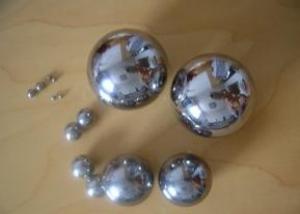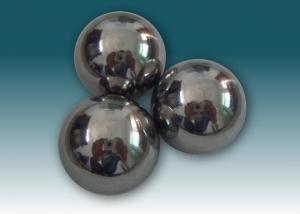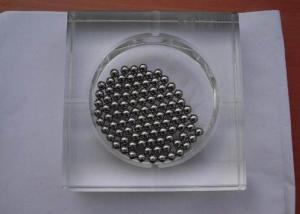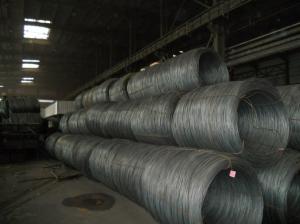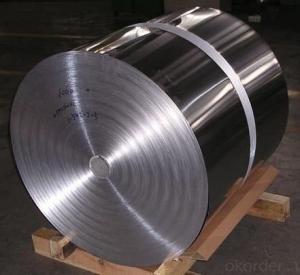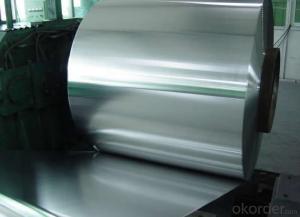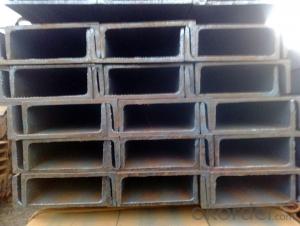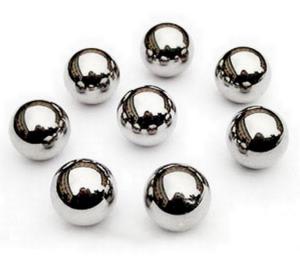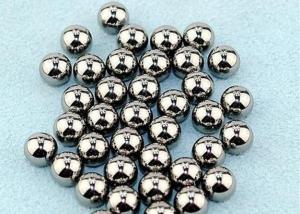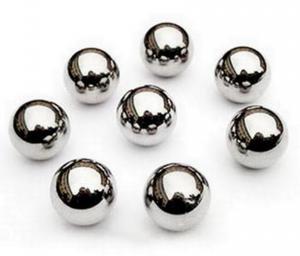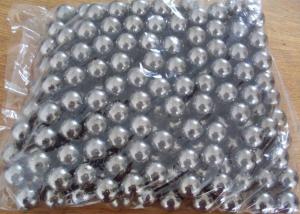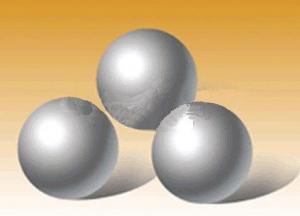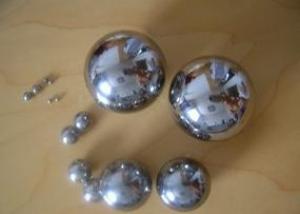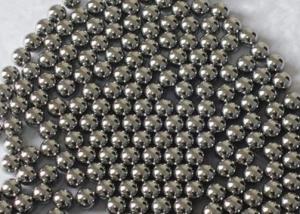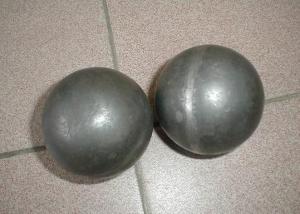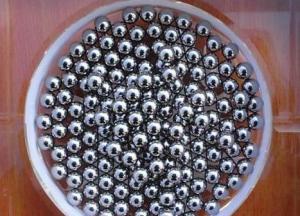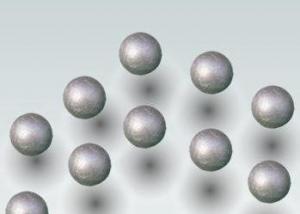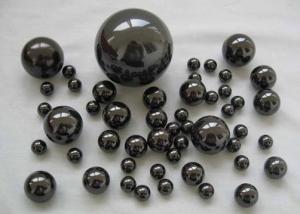430 Stainless Steel Ball
- Loading Port:
- China Main Port
- Payment Terms:
- TT or LC
- Min Order Qty:
- 5 Tons pc
- Supply Capability:
- 1000 Tons Per Month pc/month
OKorder Service Pledge
OKorder Financial Service
You Might Also Like
Stainless Steel Ball
MAIN PRODUCTS:
1. Material: AISI304, 316L, 420C, 430, 440C
2. Steel ball, with material AISI 1008-1086.
3. Chrome steel ball,with material: AISI52100
4. Flying saucer steel ball
5. Precision casting, including auto parts, machine parts, hardware handles, etc.
CHARACTER OF PRODUCTS:
1.The Grade of our products is from G10 to G1000
2.The dimension is from 0.5 mm to 25.4 mm.
3.The products from us are widely used in several industries, such as hardware, sliders, ball bearing lead screw, wheels, toys, bicycles, bearings, trust bearings pulleys, chemical industries, etc.
DETAIL SPECIFICATION:
|
Item |
SS304,316L,420C,440C Stainless steel ball |
|
Category |
Stainless Steel Ball |
|
Material |
AISI 420 430 440 SS304 316L |
|
Size |
0.5mm--25.4mm, 1/4",3/16",5/32",1/8",7/32",5/16",7/8",1" |
|
Grade |
G100-G3000 |
|
Hardness ( HRC) |
HRC58-65 |
|
Application |
Bicycle, bearing, pulley, slide, handcraft, shelf, luggage, hardware, grinding media |
|
Standard |
GB/T-308-2002, GB/T1148-93 |
|
Matched Standard |
DIN, JIS, ASME |
|
Certification |
ISO |
|
Packing |
Oily packing in pouch packing,plastic/tin box packing 1, 25kg/carton with steel pallet packing 2,25kg/carton without steel pallet packing 3,10kg/box then in wooden case packing 4,250kg/ steel drum packing or according to customers' requirement |
|
Place of original |
Shandong province, China |
|
Delivery |
Within 30 days or confirmed while placing order |
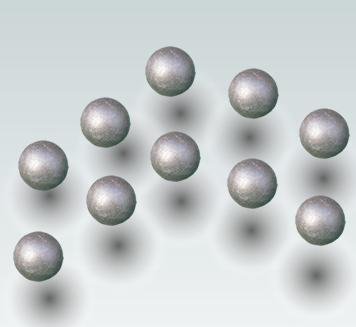
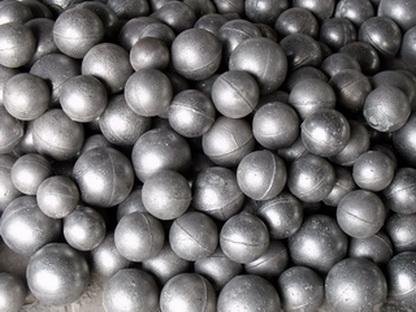
- Q:What are the different grades of stainless steel used for manufacturing balls?
- There are several grades of stainless steel that are commonly used for manufacturing balls. The specific grade chosen depends on the intended application and the desired properties of the ball. One of the most commonly used grades is 440C stainless steel, which is a high carbon martensitic stainless steel. It offers excellent hardness, wear resistance, and corrosion resistance, making it suitable for applications where the ball needs to withstand heavy loads and harsh environments. Another popular grade is 316 stainless steel, which is an austenitic stainless steel. It is known for its excellent corrosion resistance, especially in marine environments. 316 stainless steel balls are often used in applications where the ball will be exposed to water or other corrosive substances. For applications that require high temperature resistance, 304 stainless steel is often used. This austenitic stainless steel offers good corrosion resistance and can withstand temperatures up to 800°C (1472°F). It is commonly used in applications such as automotive exhaust systems or high-temperature valves. Other grades of stainless steel, such as 302, 420, and 17-4 PH, may also be used depending on the specific requirements of the application. These grades offer a balance of different properties such as hardness, corrosion resistance, and magnetic properties. In summary, the choice of stainless steel grade for manufacturing balls depends on factors such as the intended application, desired properties, and environmental conditions. By selecting the appropriate grade, manufacturers can ensure that the balls meet the necessary requirements and perform optimally in their intended applications.
- Q:Can stainless steel balls be used in industrial blenders?
- Yes, stainless steel balls can be used in industrial blenders. Stainless steel is a durable and corrosion-resistant material that can withstand the rigorous blending processes in industrial settings. These balls are commonly used for mixing, homogenizing, and grinding various materials and ingredients in industrial blenders.
- Q:Can stainless steel balls be used in textile manufacturing?
- Yes, stainless steel balls can be used in textile manufacturing. Stainless steel balls are commonly used in various textile applications such as yarn guides, bearings, and rolling elements in machinery. They offer excellent corrosion resistance, high durability, and low friction, making them suitable for textile manufacturing processes that involve high-speed spinning, weaving, and knitting. Stainless steel balls can also withstand high temperatures and provide smooth motion, ensuring a stable and precise operation of textile machinery. Therefore, they are a reliable choice for improving the efficiency, quality, and longevity of textile manufacturing processes.
- Q:Can stainless steel balls be coated with other materials?
- Yes, stainless steel balls can be coated with other materials. Coating stainless steel balls with different materials can enhance their performance, provide additional protection against corrosion or wear, or alter their surface properties for specific applications.
- Q:Are stainless steel balls used in chemical dispensing equipment?
- Stainless steel balls find widespread use in chemical dispensing equipment. Their popularity stems from their outstanding corrosion resistance and durability. These balls are employed in valves, pumps, and other dispensing mechanisms to guarantee seamless fluid flow and prevent any leakage. Moreover, stainless steel exhibits compatibility with a diverse array of chemicals, rendering it an apt selection for chemical dispensing equipment across various industries like pharmaceuticals, food and beverage, and water treatment.
- Q:Are stainless steel balls easy to clean and maintain?
- Yes, stainless steel balls are easy to clean and maintain. They can be easily wiped clean with a cloth and mild detergent. Additionally, stainless steel is resistant to rust and corrosion, making it easier to maintain their appearance and functionality over time.
- Q:Can stainless steel balls be used in pumps?
- Pumps can indeed utilize stainless steel balls. Given its exceptional durability and resistance to corrosion, stainless steel proves to be an apt choice for a wide range of pump applications. Typically employed as pump valve components or check balls, these stainless steel spheres effectively regulate fluid flow. Their ability to withstand extreme pressures and temperatures renders them particularly desirable for pumps operating in demanding conditions. Moreover, their non-magnetic attributes make them well-suited for situations where avoiding magnetic interference is crucial.
- Q:Can stainless steel balls be used in jewelry making or crafts?
- Yes, stainless steel balls can certainly be used in jewelry making or crafts. Stainless steel is a durable and corrosion-resistant material, making it suitable for various applications, including jewelry. Stainless steel balls can be used as accents, spacers, or even as the main component in jewelry pieces, such as necklaces, bracelets, or earrings. Their sleek and polished appearance adds a modern and trendy touch to any design. Additionally, stainless steel balls are often chosen for their affordability and hypoallergenic properties, making them a popular choice for jewelry makers and craft enthusiasts.
- Q:Can stainless steel balls be used in centrifugal pumps?
- Yes, stainless steel balls can be used in centrifugal pumps. They are commonly used as bearing balls or seal balls in centrifugal pumps due to their corrosion resistance, durability, and ability to handle high-speed rotations.
- Q:Can stainless steel balls be used in hydrostatic testing?
- Yes, stainless steel balls can be used in hydrostatic testing. Hydrostatic testing is a method used to check the strength and integrity of pressure vessels, pipelines, and other components. It involves pressurizing the equipment with a liquid, typically water, to a specific pressure level and examining for any leaks or weaknesses. Stainless steel balls are commonly used as plugs or sealing elements in hydrostatic testing. They are highly resistant to corrosion and can withstand high-pressure environments. The balls are inserted into the openings or connections of the equipment being tested and sealed to prevent any leaks. The equipment is then pressurized with water or another suitable liquid, and the pressure is monitored to ensure it remains stable. If there are any leaks, the stainless steel balls will prevent the liquid from escaping, allowing the testing personnel to identify and address the issue. Stainless steel balls are preferred in hydrostatic testing due to their durability, non-reactivity with liquids, and ability to withstand high pressures. They are available in various sizes to suit different equipment specifications and can be reused for multiple testing instances.
1. Manufacturer Overview |
|
|---|---|
| Location | Changsha,China |
| Year Established | 2003 |
| Annual Output Value | Above US$36 billion |
| Main Markets | Mid East;Western Europe;North America |
| Company Certifications | ISO 9001:2008; |
2. Manufacturer Certificates |
|
|---|---|
| a) Certification Name | |
| Range | |
| Reference | |
| Validity Period | |
3. Manufacturer Capability |
|
|---|---|
| a)Trade Capacity | |
| Nearest Port | Changsha |
| Export Percentage | 0.8 |
| No.of Employees in Trade Department | 160,000 People |
| Language Spoken: | English;Chinese;Japanese |
| b)Factory Information | |
| Factory Size: | Above 3,000,000 square meters |
| No. of Production Lines | Above 10 |
| Contract Manufacturing | OEM Service Offered;Design Service Offered |
| Product Price Range | Average |
Send your message to us
430 Stainless Steel Ball
- Loading Port:
- China Main Port
- Payment Terms:
- TT or LC
- Min Order Qty:
- 5 Tons pc
- Supply Capability:
- 1000 Tons Per Month pc/month
OKorder Service Pledge
OKorder Financial Service
Similar products
New products
Hot products
Related keywords
